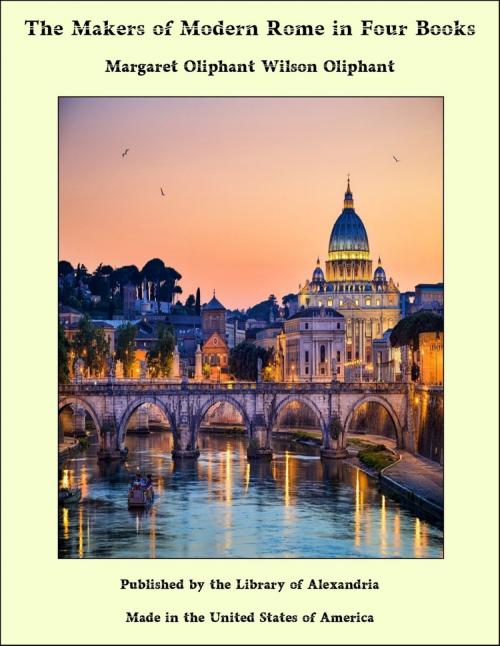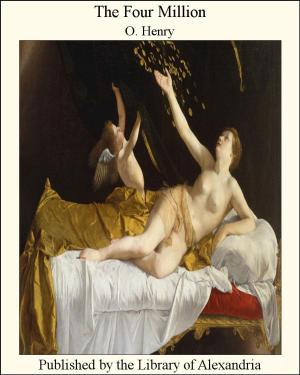The Makers of Modern Rome (Complete)
Nonfiction, Religion & Spirituality, New Age, History, Fiction & Literature| Author: | Margaret Oliphant Wilson Oliphant | ISBN: | 9781465529411 |
| Publisher: | Library of Alexandria | Publication: | March 8, 2015 |
| Imprint: | Language: | English |
| Author: | Margaret Oliphant Wilson Oliphant |
| ISBN: | 9781465529411 |
| Publisher: | Library of Alexandria |
| Publication: | March 8, 2015 |
| Imprint: | |
| Language: | English |
There is no place in the world of which it is less necessary to attempt description (or of which so many descriptions have been attempted) than the once capital of that world, the supreme and eternal city, the seat of empire, the home of the conqueror, the greatest human centre of power and influence which our race has ever known. Its history is unique and its position. Twice over in circumstances and by means as different as can be imagined it has conquered and held subject the world. All that was known to man in their age gave tribute and acknowledgment to the Cæsars; and an ever-widening circle, taking in countries and races unknown to the Cæsars, have looked to the spiritual sovereigns who succeeded them as to the first and highest of authorities on earth. The reader knows, or at least is assisted on all hands to have some idea and conception of the classical city—to be citizens of which was the aim of the whole world's ambition, and whose institutions and laws, and even its architecture and domestic customs, were the only rule of civilisation—with its noble and grandiose edifices, its splendid streets, the magnificence and largeness of its life; while on the Other hand most people are able to form some idea of what was the Rome of the Popes, the superb yet squalid mediæval city with its great palaces and its dens of poverty, and that conjunction of exuberance and want which does not strike the eye while the bulk of a population remains in a state of slavery. But there is a period between, which has not attracted much attention from English writers, and which the reader passes by as a time in which there is little desirable to dwell upon, though it is in reality the moment of transition when the old is about to be replaced by the new, and when already the energy and enthusiasm of a new influence is making its appearance among the tragic dregs and abysses of the past.
There is no place in the world of which it is less necessary to attempt description (or of which so many descriptions have been attempted) than the once capital of that world, the supreme and eternal city, the seat of empire, the home of the conqueror, the greatest human centre of power and influence which our race has ever known. Its history is unique and its position. Twice over in circumstances and by means as different as can be imagined it has conquered and held subject the world. All that was known to man in their age gave tribute and acknowledgment to the Cæsars; and an ever-widening circle, taking in countries and races unknown to the Cæsars, have looked to the spiritual sovereigns who succeeded them as to the first and highest of authorities on earth. The reader knows, or at least is assisted on all hands to have some idea and conception of the classical city—to be citizens of which was the aim of the whole world's ambition, and whose institutions and laws, and even its architecture and domestic customs, were the only rule of civilisation—with its noble and grandiose edifices, its splendid streets, the magnificence and largeness of its life; while on the Other hand most people are able to form some idea of what was the Rome of the Popes, the superb yet squalid mediæval city with its great palaces and its dens of poverty, and that conjunction of exuberance and want which does not strike the eye while the bulk of a population remains in a state of slavery. But there is a period between, which has not attracted much attention from English writers, and which the reader passes by as a time in which there is little desirable to dwell upon, though it is in reality the moment of transition when the old is about to be replaced by the new, and when already the energy and enthusiasm of a new influence is making its appearance among the tragic dregs and abysses of the past.















